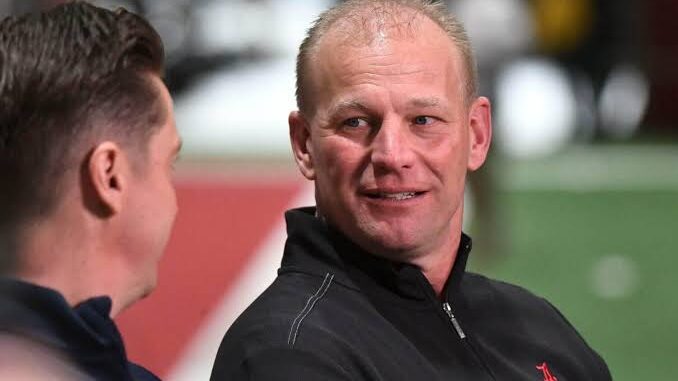
In a world where egos often drive the narratives of athletics, Kalen DeBoer stands out as a beacon of humility and people-centric leadership. The 49-year-old football coach of the University of Alabama has transcended the traditional boundaries of coaching by focusing not just on the game, but on the individuals who play it. His recent hiring as Alabama’s head coach marks a significant chapter in both his career and the storied history of Crimson Tide football, as DeBoer brings a refreshingly different perspective to one of college football’s most successful programs.
DeBoer’s journey to Alabama is steeped in a belief that the heart of football lies in relationships. Born and raised in California, he established himself as a successful coach at both the college and high school levels. His previous positions, including head coach at the University of Washington and assistant at Fresno State, highlighted his ability to connect with athletes while fostering an atmosphere of performance and improvement. Under his leadership, Washington became a powerhouse in the Pac-12, showcasing that his methods yield results.
At Alabama, a program historically defined by its intense competitive culture, DeBoer sees great potential for growth—not only in terms of wins and losses, but in building meaningful connections with his players. “I believe that for a team to truly excel, there needs to be a foundation of trust and connection among all members,” DeBoer stated in a recent press conference. “In this role, my focus is on the people who wear the uniform and how we can elevate their game, both on and off the field.”
This philosophy stands in stark contrast to the often cutthroat environment that can permeate college football, where the pressure to win can overshadow the importance of player wellbeing. DeBoer’s approach redefines how success is measured. He prioritizes open communication and accountability, encouraging his players to voice their concerns and aspirations. “There’s no ego here,” he emphasized. “Just a group of people striving towards a common goal.”
While traditionalists may be skeptical about the effectiveness of this softer approach to coaching, the results speak for themselves. Players who have worked
Leave a Reply